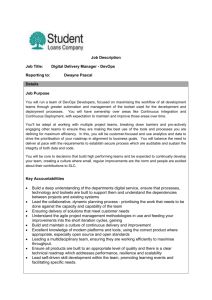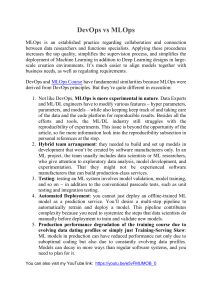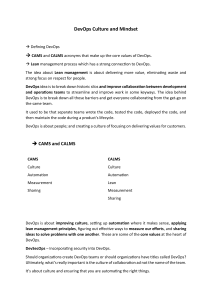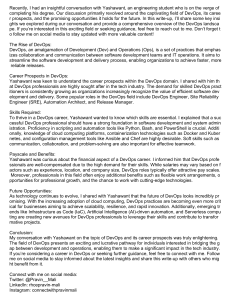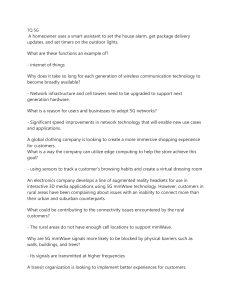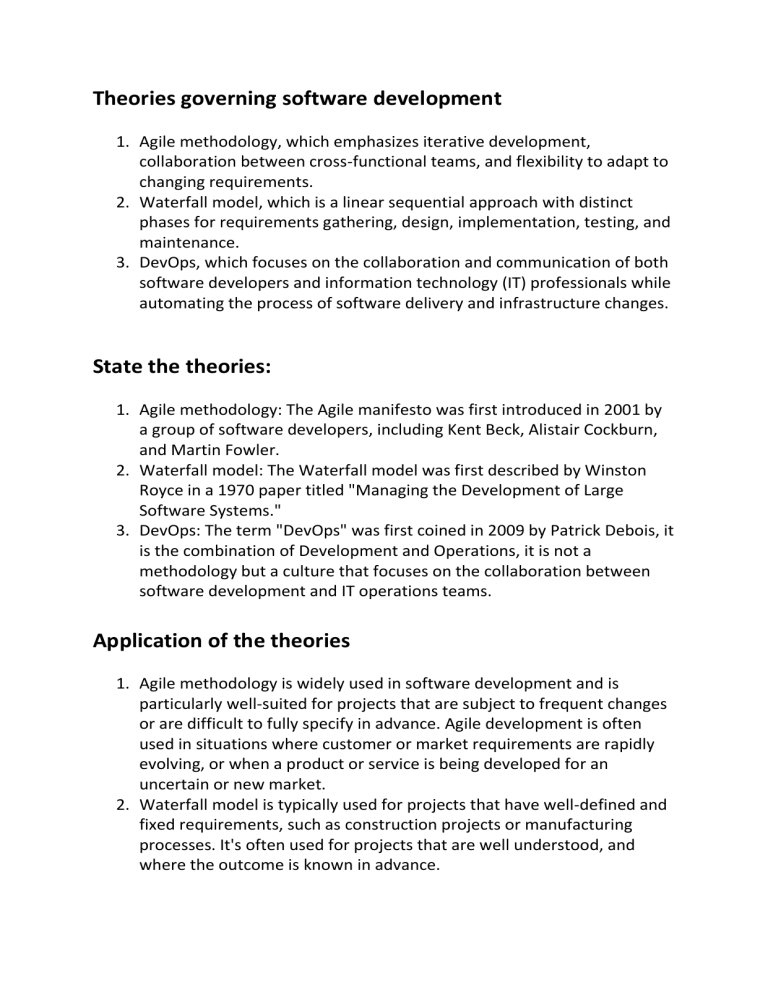
Theories governing software development 1. Agile methodology, which emphasizes iterative development, collaboration between cross-functional teams, and flexibility to adapt to changing requirements. 2. Waterfall model, which is a linear sequential approach with distinct phases for requirements gathering, design, implementation, testing, and maintenance. 3. DevOps, which focuses on the collaboration and communication of both software developers and information technology (IT) professionals while automating the process of software delivery and infrastructure changes. State the theories: 1. Agile methodology: The Agile manifesto was first introduced in 2001 by a group of software developers, including Kent Beck, Alistair Cockburn, and Martin Fowler. 2. Waterfall model: The Waterfall model was first described by Winston Royce in a 1970 paper titled "Managing the Development of Large Software Systems." 3. DevOps: The term "DevOps" was first coined in 2009 by Patrick Debois, it is the combination of Development and Operations, it is not a methodology but a culture that focuses on the collaboration between software development and IT operations teams. Application of the theories 1. Agile methodology is widely used in software development and is particularly well-suited for projects that are subject to frequent changes or are difficult to fully specify in advance. Agile development is often used in situations where customer or market requirements are rapidly evolving, or when a product or service is being developed for an uncertain or new market. 2. Waterfall model is typically used for projects that have well-defined and fixed requirements, such as construction projects or manufacturing processes. It's often used for projects that are well understood, and where the outcome is known in advance. 3. DevOps is applied in software development to bridge the gap between development and operations teams and to improve the speed, quality, and reliability of software delivery. This can be achieved by automating many of the processes between development and operations, such as testing, deployment, and infrastructure management. DevOps is particularly useful for organizations that need to deliver software quickly and frequently, such as in the case of web-based businesses or organizations that use cloud computing.
